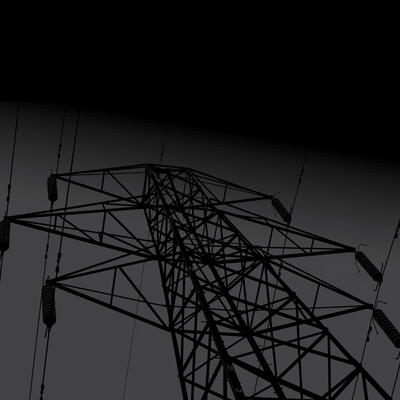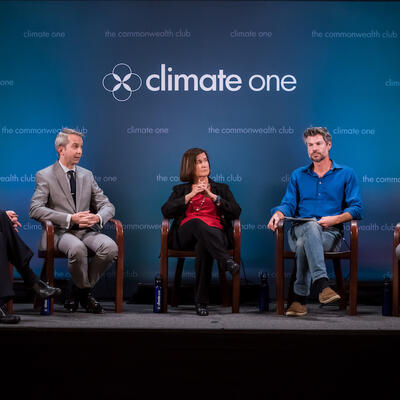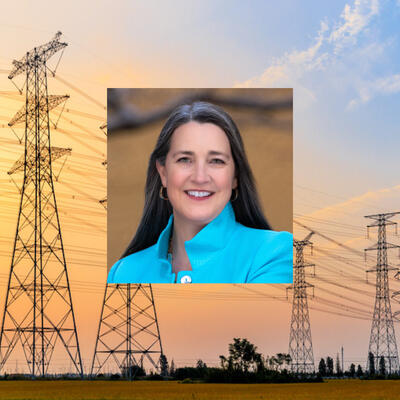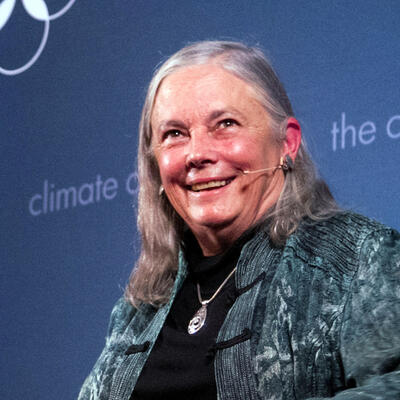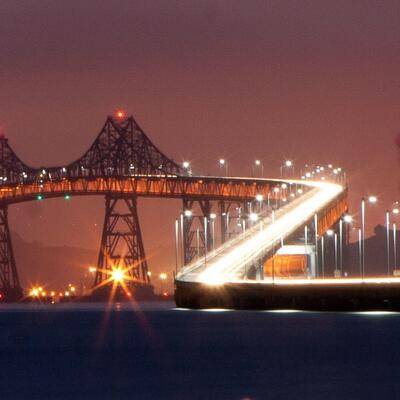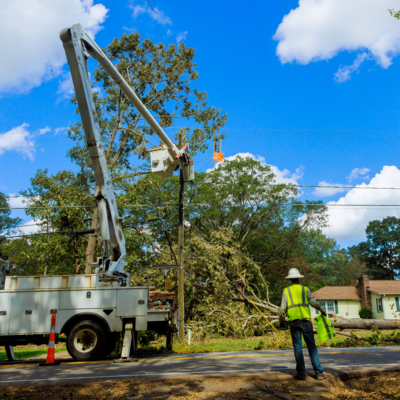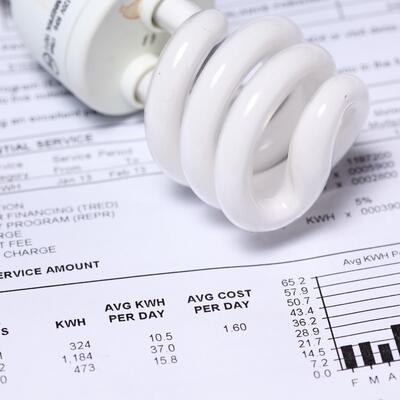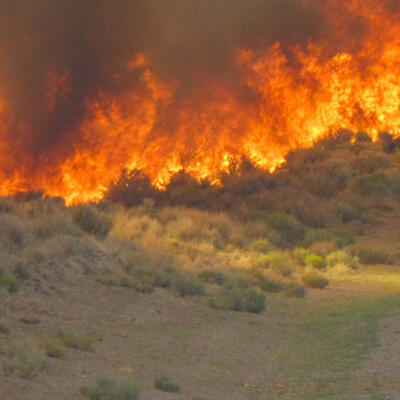
How Climate Broke California’s Biggest Utility
Guests
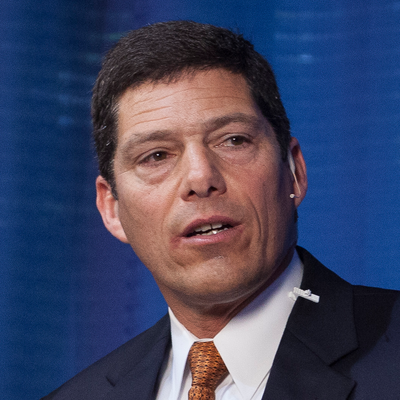
Hunter Stern
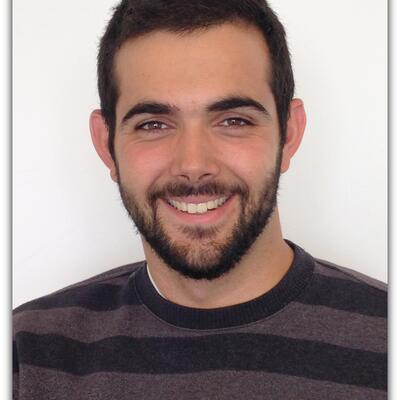
Alex Ghenis
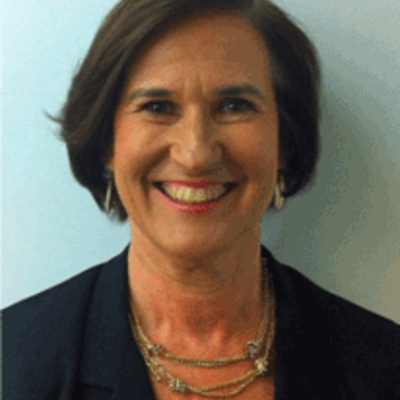
Dian Grueneich
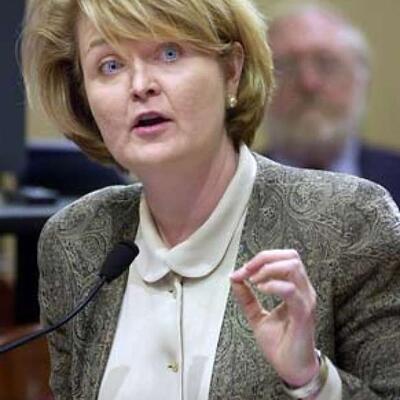
Loretta Lynch

J.D. Morris
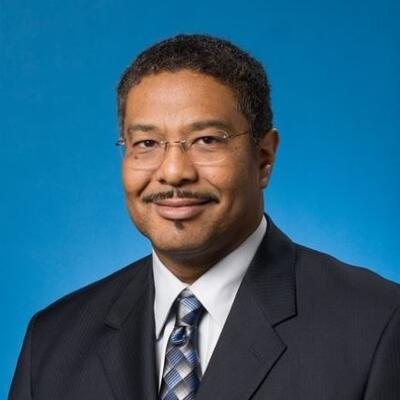
Mark Toney
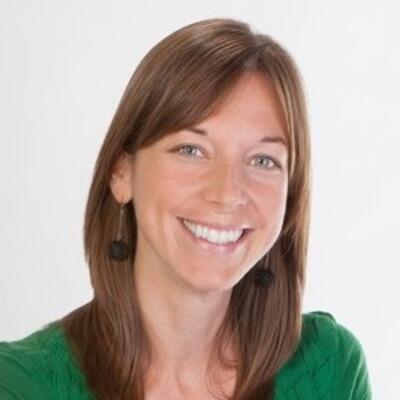
Laura Wisland
Summary
PG&E has had a bad few years. A series of record-breaking wildfires culminating with 2018’s devastating Camp Fire propelled the California utility giant into lawsuits, $30 billion in liabilities and, ultimately, bankruptcy. Under new state laws, regulated utilities will have a hard time avoiding blame in fires where their equipment is involved—so what’s ahead for PG&E’s peers and their shareholders when a deadly blaze could spell bankruptcy? What happens when the California dream of living near nature is in direct conflict with disruptive tragedies fueled by climate change?
Full Transcript
Greg Dalton: This is Climate One, leading the conversation about energy, the economy and the environment. In the past few years, massive wildfires have devastated California, destroying thousands of homes and killing more than a hundred people. Experts say droughts and other conditions amplified by climate change are one factor. But there is more to the story.
Mark Toney: No matter what happens we have to hold PG&E accountable for negligent acts.
Greg Dalton: Energy provider PG&E admitted that its equipment probably caused the Camp Fire, the most deadly blaze. Now the company is facing a flurry of government investigations and litigation from victims.
Patty Garrison: Essentially what our lawsuit is demanding or asking for from PG&E is that the fire victims lives are made whole again.
Greg Dalton: PG&E is now bankrupt and some are calling for the company to be carved up or taken over. How climate broke California’s largest utility. Up next on Climate One.
Greg Dalton: I’m Greg Dalton. What – or who - is to blame for California’s devastating wildfires?
Mark Toney: PG&E was put into bankruptcy through their own criminal negligence and we’ve got to hold them accountable and come up with a way of stopping wildfires from happening in the first place.
Greg Dalton: As far back as the 1990s, PG&E was ignoring the fire danger posed by aging equipment and overgrown trees. Not even hefty fines from the California Public Utilities Commission could get them to clean up their act.
Loretta Lynch: We fined them over hundred million dollars. That was chump change to them. They continued to pocket necessary maintenance monies and profit from it while the system deteriorated.
Greg Dalton: Faulty power lines, combined with drought conditions and dying trees worsened by climate change, sparked California’s most deadly wildfire ever. On today’s program, we welcome two panels of guests to talk about fires, energy and the future of power in California.
First up, we’ll hear from Dian Grueneich, former Commissioner with the California Public Utilities Commission, J.D. Morris, Energy Reporter with the San Francisco Chronicle, and Mark Toney, Executive Director of The Utility Reform Network, a consumer advocacy group. We invited a representative from PG&E to join us, but they declined to participate.
We begin with a personal story. Patty Garrison and her husband have filed one of the many lawsuits that are now pending against PG&E. The Garrisons lived in the town of Paradise for thirty years before their home was destroyed by the Camp Fire last November. Patty Garrison tells us what happened that night.
Patty Garrison: When I first heard of the fire I was actually in Kauai.I got a call from my daughter without saying goodbye tells me that they were just gonna all jump in the same car together and basically die. She calls me a bit later and says they survived going through the flames with the horses. So after a few days we were able to find out that my house was gone. My daughter's house didn't burn until the second day of the fire.
Essentially what our lawsuit is demanding or asking for from PG&E is that the fire victims’ lives are made whole again. It was record breaking how many warnings that the weather department contacted our power companies and let them know that we had dangerous weather conditions for power lines and nothing was ever done. It’s just infuriating that that kind of negligence has decimated a town and is continuing to kill people. PG&E first and foremost wants to protect its stockholders. I'm not asking much. I'm just asking that things are done correctly and for the purpose the number one is the safety of these rural communities. We just want to make sure that this never happens again.
Greg Dalton: That was former Paradise resident Patty Garrison. She and her husband are suing the utility PG&E. Dian Grueneich, your response hearing that personal story, one of many, many stories of loss and pain and seeking justice.
Dian Grueneich: I mean first of all it’s just devastating to hear it, you know, it's just sort of incomprehensible to even imagine your entire community being destroyed and people dying. What I think is just shocking is there was a hearing at the agency where I used to be a commissioner the Public Utilities Commission on Monday and you can actually go online through the CPUC website and listen to it. So I did yesterday in preparation and they had one of the members of PG&E's board of directors speak and he was just point blank, “we don't have an adequate culture of safety at PG&E.” And I've been in this energy world for 40 years and believe me, I've seen lots of problems with utilities, but to actually realize how did we get in this stage where a major official is just saying we don't have an adequate culture we have to fix it.
Greg Dalton: Well that’s what we’ll talk about right now. J.D. Morris, why don’t you tell us the company’s in bankruptcy. What are some of the battle lines you got people scrambling trying to get shift the cost shift the blame, lay out the battle lines.
J.D. Morris: Well, one of the big battle lines definitely involves all of the people that are suing them because of the wildfires both from the Camp Fire in 2018 and of course the horrible fires in the North Bay the year before that. Those lawsuits all got stayed when they filed for bankruptcy. So now those people are a party in the bankruptcy court and they are interjecting themselves all over the place as they should be. But there's so much uncertainty for those people now about when they're gonna get paid how much they are gonna get paid and how that will all play out. So that was my reaction listening to her story definitely.
A lot of the fighting I think going forward is gonna be about how this company spends its money and how it restructures itself because at the end of the day PG&E has to come out of bankruptcy as a new company in some form and we don't yet know what that will look like. There's a lot of different options that they’ll be exploring.
Greg Dalton: Mark Toney, some of those options are split it in half, split rural, urban, you know, you advocate for the voice of consumers of ratepayers. What do you think should happen or not happen in the reconstruction of this utility, you know, coming out of the ashes?
Mark Toney: No matter what happens we have to hold PG&E and whatever successor there is accountable for negligent acts. PG&E was not put into bankruptcy by climate change, PG&E was put into bankruptcy through their own criminal negligence and we’ve got to hold them accountable and come up with a way of stopping wildfires from happening in the first place. We have to come up with a way of when fires do start of getting them put out as soon as possible before they become major fires. So what I think is very important is that no matter what the formation of PG&E that the regulators have standards, that the public has standards, and we have the right to safe, clean, affordable energy that is what we pay for every month.
Greg Dalton: J.D. Morris, one of the things being debated is, is the company liable in any case, or they only liable for negligence, this idea. I don’t want to use this term inverse condemnation because I have no idea what that means I’ve read it many times in the newspaper and still my head hurts when I think. So strict liability is what you call it. So tell us about this the liability, if they’re liable only for negligence or if they’re liable in more broader ways.
J.D. Morris: Okay. So, yeah this is a bit of an arcane topic I think before these fires started but it's super important. California has this principle; the easiest way to understand it is to think of it as strict liability. It's a legal doctrine technically called inverse condemnation but that’s the last time I’ll say that word. And what it means is that in California utilities can be held liable, legally liable for wildfires caused by their equipment even if they were not negligent, even if they followed all of the applicable laws, they can still be held responsible for that. And PG&E sees that as a really big problem the credit rating agencies see that as a big problem for all utilities in the state actually. PG&E tried to reformat before the Camp Fire and they were not able to do that. So now I think that conversation is coming up again just on Friday Governor Newsom unveiled a list of proposals for what to do about this whole issue of utilities and wildfires going forward. And one of the things on the table there are several options but one of them is taking another look at this strict liability doctrine and possibly moving toward a model more based on fault. But that could be controversial in the legislature so we'll see. There are several other ideas too.
Greg Dalton: Dian Grueneich, what responsibility do regulators bear here because they have the job of overseeing this and it's more sexy to talk about solar renewable energy than it is safety. Was safety a big focus, how many times did you get breakdown --
Dian Grueneich: Well these fires didn’t happen when I was there, okay.
Greg Dalton: But you can talk a lot about safety when--
Dian Grueneich: But you bring up a very good point. I mean generally people in California want to become regulators we do care about rates we do care about affordability but there is all the shiny fun stuff called clean energy and climate and how can we change the world and really deal with things that way. When I was a commissioner I can't even recall having more than maybe one or two briefings on safety that it just wasn't in the forefront. Now since then it’s changed I think pretty dramatically. There's a safety division. I know that there are regular briefings; the staff is enlarged. In fact, one of the recommendations in this report that the governor put out on Friday was we need to do even more, you know, we need to get more employees at the regulators who really understand safety, deep down.
But there is this big tension that again these are complex issues I think we all wish we could just, you know, wave the wand which is as a regulator, you hear evidence you hear, you know, a lot of these policy concerns that Mark is so absolutely correct that affordability is just a huge issue in California across everything, you know, housing, electricity etc.
But what we don’t have are the regulators literally sitting inside the offices just down the street at 77 Beale Street, PG&E headquarters and really understanding okay here’s a 500-page decision that came out how much is that being implemented and understood by thousands and thousands of PG&E employees.
Greg Dalton: J.D. Morris, there’s gonna be as a result of these fires the utilities in California and perhaps the Western United States are gonna be turning off what do they call deenergizing turning off the power more frequently. And that can happen even in urban areas far away from fire area. Tell us how that is gonna work.
J.D. Morris: Right. I don't know that most people out there really appreciate how much this could change going forward. But last year for the first time ever Pacific Gas and Electric followed the lead of San Diego which has been doing this for many years and decided to start turning off the power during times of high fire danger. It was pretty messy rolling it out there is some controversy with how they did it, but what they realize in the interim because the Camp Fire happened in November, was that they actually need to expand that program. And so a couple months ago I think they came out with the plan to vastly expand the scope of their forced blackout program.
And what that means is that any of PG&E's electric customers they say any of them could have lose their power sometime during fire season because of the fire danger regardless of whether you actually live in a high fire danger area. And the reason for that as best I can understand at least is because they have expanded it so that they are also going to be deenergizing the high-voltage transmission lines that they used to not turn off. And transmission lines you can think of like, they’re like the freeways of the electrical grid whereas distribution lines are more like surface streets city streets. And if you're shutting off like closing down city streets a neighborhood is much more limited thing than closing down a whole interstate you have a lot more people that can be affected.
So that means that even if you live here in San Francisco if we’re being served by a transmission line in a high fire danger area and PG&E decides to turn that off the power could be out for you. So expect a lot more blackouts going forward, we don't know how many I guess we'll see this summer, but it could happen.
Greg Dalton: Mark Toney.
Mark Toney: If I can add upon that it's being euphemistically called a public safety power shut off. From our standpoint, it needs to be a last resort and it needs to be temporary. It is no substitute for a safe electrical system and here's why. When they do this type of shut off before they can turn the power back on they have to inspect every mile of the lines that has been shut off so that the average time of this type of shut off is 72 hours. That's three full days that when they implement it you will be without electricity. So that's why we believe this should be a last resort temporary until they can get their act together get the trees trimmed get the power lines insulated whatever they need to do because remember, we are paying them to deliver safe, reliable, clean electricity. Now we're paying them to shut us off, makes no sense.
Greg Dalton: Dian Grueneich you can respond to that. Also want you to address whether all of this volatility is gonna hurt California's climate goals. Because the state has relied on PG&E which has been a partner in moving towards cleaner electricity and now is that future thrown into doubt?
Dian Grueneich: So I want to put this issue in a different context which is we have about 50 municipal utilities in California. And those are ones that basically their officials or elected by the people and they're very involved in their communities. Sacramento has one. We have a cabin up north in Trinity County and that has a local utility. And so think about how we’re gonna deal with these issues where it's not necessarily the utility that everybody has figured out they hate but it is a utility that you feel very connected to that you feel it's been doing the best it can.
And the other concerning part of this is that our municipal utilities are in rural areas a lot that are very poor in California. And so they don't have shareholders that they can go to if they are hit with these devastating fires and say, hey, you know, we’re gonna cut off your dividends and you know, whatever we just want to be able to take care of our people who have suffered damages or worse. And they are in the exact same situation because they also are vulnerable to these fires and that's what I feel personally there hasn't been enough attention to because it's one thing if you are dealing with sort of the investors and the bad guys out there. It’s another thing if these are the utilities that are part of our community. What is going to be their solution? They can’t raise rates, you know, double rates where already you know, 40%, 50% of their community is below poverty line.
So that's sort of the context I have and then let’s throw on top of it your question which is okay, we've got all these goals on climate in California. We are proud to be, you know, the world's leader in climate thank God we’re doing that but it's costly, this is not free. We have over 50% of our greenhouse gas emissions in California come from transportation. We have to very quickly move to electrification of our transportation system and get away from fossil fired cars and other transportation. Well that requires a whole lot of installing charging stations having better, you know, infrastructure out there. And the utilities for better or worse are connected to that because it's increasing the electricity.
Greg Dalton: You’re listening to a Climate One conversation about PG&E’s role in causing California’s devastating wildfires. Coming up – tough questions from our live audience.
Female Participant: You know, San Bruno happened a while ago and that was a huge focus that they were negligent. So why hasn’t it changed?
Greg Dalton: That’s up next, when Climate One continues.
Greg Dalton: This is Climate One. I’m Greg Dalton. We’re talking about California’s energy future and its biggest utility, PG&E. My guests for this segment of the program are San Francisco Chronicle reporter J.D. Morris, Mark Toney of the Utility Reform Network and Dian Grueneich, a former commissioner with the California Public Utilities Commission.
Let’s go to some questions from our live audience.
Female Participant: Thank you. My name is Deborah Moore and you talked about how the PG&E person said there was a lack of a culture of safety. And I'd like more of you I guess to comment on that because I'm wondering, you know, San Bruno happened a while ago and that was a huge focus that they were negligent. So why hasn’t it changed?
J.D. Morris: So for those who don't know San Bruno, a city just south of San Francisco in 2010 there was a really bad gas pipeline explosion in the middle of the night or early in the morning and it killed I think eight people and destroyed 38 homes. It was a huge controversy years later PG&E was convicted of several felonies. And so they are actually on probation because you can't send a company to prison is what their probation judge pointed out recently.
But there's actually an entire proceeding at the California Public Utilities Commission about PG&E’s safety culture and I believe it came originally out of San Bruno it has also recently expanded to look at wildfires and the Public Utilities Commission is now asking these big questions and actually having public hearings where they’re sort of asking okay what's going on why hasn't this company improved in the way that we want to see it improved and should it be taken over by the government, should the gas and electric side split up. I don't know, I mean I wish there was an easier, more straightforward answer to that question, but it's being looked at, there are consultants doing audits and it's a lot.
Greg Dalton: Let’s get to our next question. Welcome to Climate One.
Male Participant: Hello my name is David Trilling. PG&E has been known as bad actor with these recent fires there’s been talk about turning PG&E into a public utility. That hasn’t been discussed yet tonight. Can you please talk about that?
Greg Dalton: Mark Toney.
Mark Toney: I think the most important thing whether PG&E is public or private is the accountability that they haven't had. This safety culture is a meaningless term. Safety performance is what people expect. I would like to see proposals on public takeover of PG&E; I have not seen any yet. I want to caution people about dividing it up into small pieces where the most attractive parts of the system where you have high population density say San Francisco East Bay, South Bay form their own municipalities and insulate themselves from the fire risk that the poor rural communities have.
Right now we have a system where risk and costs are spread over a large number of customers and I think we're going to want to continue to do that. The Camp Fire, I live in Oakland we could barely breathe. Work in San Francisco, we could barely breathe for weeks. We are all being affected we all need to be part of the solution.
Greg Dalton: We’re talking about climate, wildfires and energy at Climate One. I’m Greg Dalton, and we’ve been hearing from Mark Toney of the Utility Reform Network, Dian Grueneich, formerly with the California Public Utilities Commission, and J.D. Morris of the San Francisco Chronicle.
Greg Dalton: I met Alex Ghenis here at Climate One and he honestly, I had never thought about people with disabilities fleeing wildfires. If teenagers perished fleeing fires what are the chances people have in wheelchairs, who's looking out for them. Alex Ghenis is a Policy and Research Specialist with the World Institute on Disability. Please join me in welcoming him to the Climate One stage.
[Applause]
Alex, thanks for joining us. So tell us about people with disabilities and how their, you know, a lot of the people who, the fatalities of the fires recently are elderly and people with disabilities. So tell us about that.
Alex Ghenis: At the World Institute on Disability we started about five years ago a project called New Earth Disability. I increasingly realized people with disabilities are more vulnerable in a changing world. That we, you know, I, myself I use a power wheelchair I acquired a spinal cord injury at age 16 and I need the medical system. I need electric power at night and if we’re gonna be running off of intermittent renewables I need to be able to plug in my wheelchair, I need to be able to charge my chair. I have plenty of friends that in their daily lives need access to the built environment that we've created.
And as climate change progresses and I ended up moving from energy storage over to the World Institute on Disability because we started looking at when climate change hits everybody else has been saying this is going to cause disabilities. This is going to lead to death, medical harm they have this term disability adjusted life years that puts a numerical value on how disabled you become due to some climatic or environmental change. And we said, we need to flip that on its head, because people with disabilities are a constituency they’re a group they have individual needs they have rights they have human rights and they have rights to access to a safe environment.
That all gets compromised as the environment changes, as we get more extreme weather storms, natural disasters, the built environment gets disrupted, people with all sorts of disabilities lose access to caregivers, the housing, the specialized developed housing. I myself have, you know, an elevator and a roll in shower and that's difficult to reacquire. People with disabilities have fewer assets they have higher rates of poverty, lower median and average incomes all sorts of things that already living in a marginalized state, already relying on what ends up being kind of a fragile system as the climate changes it just endangers them in all sorts of ways.
Greg Dalton: So what are the lessons after these recent tragic fires in California. Are there plans to help people living with disabilities next time because there will be more fires, what's being done to make it better next time?
Alex Ghenis: Organizations are trying, governments are trying. The way that disaster preparedness works is so much is done at the county level. Counties and cities have to have emergency preparedness plans and there are certain laws that dictate including access and functional needs, AFN, it’s kind of the technical term there, into county disaster readiness plans. What ends up happening is that there is no concrete guidance and there's no concrete guidance in general on how to address access and functional needs and certainly as we look across California at the different geographies and the different climate vulnerabilities for different areas of the state it’s difficult to replicate that.
Greg Dalton: Alex Ghenis is with the World Commission on Disability. Alex, thanks for joining us up here.
Greg Dalton: We now welcome our second panel.
Hunter Stern represents the International Brotherhood of Electrical Workers Local 1245. Loretta Lynch is a past president of the California Public Utilities Commission. And Laura Wisland is Senior Manager of Western States Energy at the Union of Concerned Scientists. San Francisco has recently floated the idea of a government takeover of PG&E. I asked Hunter Stern what that would mean for its workers.
PROGRAM PART 3
Hunter Stern: Yeah for our members it’s not a good step. There's no portability between benefit plans. So if you are a worker at PG&E here in San Francisco or nearby and the city takes it over you can’t just step into the job in San Francisco and take your benefits with you. We’d have to negotiate wages; that's not such a big deal but it would make experienced workers have to choose do they want to stay with the company where their benefits are or they’re willing to take less and work for the new employer.
Greg Dalton: Loretta Lynch, what do you think about governments coming in? We have these investor-owned utilities that are profit driven; that's led to lots of problems. What about government the people stepping in?
Loretta Lynch: Well the problem here is that we have socialized the cost of PG&E's criminal negligence and they want us to keep the benefits private. If we’re going to socialize the cost we should socialize the benefits. Or if it stays private we should have a say as California in the utility’s future. When the government bailed Chrysler out the workers got a seat on the board as did the government. The victims should have a seat on PG&E’s board the consumers should have a seat on PG&E's board. The Mayor of San Bruno should have a seat on PG&E’s board and the government should have a seat on PG&E's board and that should happen before we even begin a conversation about liability changes or any bailouts.
Greg Dalton: Hunter Stern, the union is pretty close with PG&E. What do you think about union board members, fire victims on the board?
Hunter Stern: I think the leadership whether it’s the board or senior leadership that is now coming in because all the old leaders of PG&E and 10 of the 13 board members are no longer there. So it's not PG&E that it used to be. That doesn’t mean it’s gonna be better but from our standpoint nine times out of 10, nine issues out of 10 maybe 9 1/2 what's good for the customers are good for our workers and vice versa. Our guys are out there working they’re providing the service, sometimes under pretty difficult conditions including fire damage, no matter the cause they're out there restringing the wire making sure people have gas and electricity. So from that standpoint better advice, better leadership, our guys will applaud that. We will support that.
Greg Dalton: Loretta.
Loretta Lynch: But just changing the faces and not changing the attitudes and the corporate culture is gonna do nothing. PG&E's new board is led by somebody I know well who's from Pennsylvania who worked for the George W. Bush’s FERC [Federal Energy Regulatory Commission] and who believes in federal control and believes in electricity markets. I would argue that we need Californians leading the California private utility or it should be public. And just to make it really clear, it was not the workers fault that there was criminal negligence in terms of PG&E cutting corners, cutting safety, and focusing on profits and not reliability and safety.
Greg Dalton: Laura Wisland, how can California have electrical utilities that power its economy that's safe and also addresses climate change? Is there a tension between green and safety?
Laura Wisland: I don't think there can be, I don’t think we have a choice. I think we have to -- there's no question that climate change is driving the situation that we’re in and there's no question that we have to keep moving forward with our clean energy transition. We know that there are opportunities and we need to keep seeking out opportunities to make investments in the grid that are gonna make it stronger and safer and also are gonna help us drive towards our clean energy future because we know that we don't have another option.
Loretta Lynch: But you know it wasn’t just climate change that caused all these devastating wildfires in PG&E territory. It was PG&E's negligence. If it were just climate change all utilities in the arid West at the urban wildland interface would be experiencing the same kinds of problems. And San Diego Gas and Electric used to experience those in the early 2000’s but then they stopped with their devastating wildfires by and large. Why? Because plaintiff’s lawyers and victims held them accountable and they changed their practices not only in deenergizing or turning off the power but also in replacing the power poles and replacing the lines and doing the maintenance and doing the tree trimming and all the other things that PG&E has failed to do.
When I was first president of the California Public Utilities Commission in 2000 we fined PG&E for failing to use their designated money for tree trimming. We fined them over hundred million dollars. That was chump change to them. They continued to pocket necessary maintenance monies and profit from it while the system deteriorated. That's why they were convicted of criminal negligence and that's what we have to change. That was a failure frankly of the Public Utilities Commission and the political leadership for the last 10 years and trusting PG&E and not verifying. They’ve just lost our trust. They've lost the benefit of the doubt. And now we need to verify, verify, verify, and never trust again.
Laura Wisland: I think it's important to hold PG&E accountable and I think that it's clear that crimes have been committed and they shouldn’t be let off the hook. But I also don’t think they are unique in that they’re not the only utility that’s gonna be facing climate disaster coming down the road even though we've been able to stave off other disasters or has been wildfires where other utilities in the state have handled it better than PG&E. This is just the beginning of what we’re gonna see in other places in the country. We've got historic drought across the West; we've got hundreds of millions of dead trees in the Sierras and the Rocky Mountains. We've got to be thinking about how to seek out investments and solutions that not only make us safer and hold the utilities accountable but also deal with climate change.
Greg Dalton: And Loretta Lynch, I tend to think that it's going to cost a lot of the investment and I have a hard time seeing how municipal utilities are going to be able to come up with the money required. A lot of this comes down to where’s the wealth and power, right. And so how are we gonna pay for this future, who’s gonna, you know, shareholders don't want to pay consumers we've heard across the state are getting electricity turned off, already California has high-energy rates. How are we gonna pay for this future?
Loretta Lynch: Well municipal utilities have much lower rates on average than private utilities. Why? Because there's no profit. And municipal utilities have much lower wildfire damage than private utilities in California so far, why, because they don't scrimp on maintenance and they don’t scrimp on their workers and they don’t try to contract everything out to the lowest bid in order to pocket that profit. It's also a failure of the regulator. Our regulator in California has become a lapdog and not a watchdog. And when I was there I tried to be a watchdog and it was hard because the whole system is about going along and getting along and scratching their back and not looking at the real problems. And so we have to take a hard look. Remember San Bruno? We should have fix this right after that but it took the Public Utilities Commission months if not years to actually dig in. And it was only at the insistence of a legislature that they dug into the real causes of that.
Now I would also argue that somebody should have gone to jail. I know that the probation officer says well you can’t send a corporation to jail but you can send the corporation executives to jail and no one was charged. And that was a failure of the prosecutors both on the state and federal level as well. We have to create the right incentives and the regulator has to be a watchdog that is a very careful steward of the ratepayer’s money. And this regulator for the last 10 years has not been. This regulator for the last 10 years has allowed the utilities to spend like drunken sailors on the latest shiny object like smart meters and bonuses and all sorts of other things and whole lot of dividends. And we need to go back and claw back some of that -- wasteful spending and make sure that the shareholders also pay their fair share.
Greg Dalton: Former PG&E CEO I think walked away with $36 million after he left, Peter Darbee. Loretta Lynch, at one point there was an investigation into Mike Peevey, former head of the Public Utilities Commission for being very cozy. What happened to that investigation, did that quietly just --
Loretta Lynch: What happened to that investigation? No charges were brought even though it's very clear there were secret backroom deals were everybody profited but the ratepayers and the environment. There's not gonna be enough money to reach California's clean energy goals if we continue to spend like drunken sailors and make secret backroom deals. There's not gonna be enough money to bring California into the 21st century and make sure that we have safe reliable service and adequately and properly trained workers and enough of them to ensure safe, reliable service if we continue to spend billions of dollars on the latest gadget like smart meters.
We’re now on the third generation of smart meters. So first we bought the beta version and then the VHS and now I think we’re kind of on the DVD version and why, what has that contributed? It's the failure of the regulator. And it was not only a lapdog when it comes to my successor, Mike Peevey it was much more than that.
And who's holding anybody accountable there both on the regulator and on the corporate side. And that’s why I do disagree with one of the key recommendations of the governor strike force which is to give the PUC more authority. I mean this PUC has lost the benefit of the doubt as well. And the last thing we need is a biased referee that always calls the balls and strikes for the utility to have more authority to call more balls and strikes. The California economy can't withstand that.
Greg Dalton: There was one incidence of allowing the utility to shop for judges, judge shopping to pick the referee. Hunter Stern, your response to drunken sailors spending money on toys?
Hunter Stern: Well, I haven’t met any drunken sailors lately. No, the key I think that Loretta is pointing out is there needs to be wise investment and focused investment on the kinds of equipment and technology that all the utilities not just PG&E, including the public utilities need to make to ensure that we have the clean energy future that we promised ourselves here in the state. And specifically there's still a lot of leakage, meaning inefficiency in the grid and part of that is gonna be new technology investment part of it is gonna be resilient technology or resilient equipment to withstand wildfire.
And this isn't just in California as Laura mentioned this is the West. We’re facing drought, wildfire, high winds in the middle part of the country they’re facing tornadoes, floods, high winds. And on the eastern side of the country its hurricanes and high winds. So the wind is a big problem and it's a real threat to any electric infrastructure under any conditions. So these are the things that our members are ready to do and want to do and frankly I mean for the people who work at PG&E and there's 12,000 of our members and plenty of contractors now doing the work that Loretta pointed out should've been done earlier. They need the confidence that somebody's gonna be there so that they can keep working and keep serving you. And right now that's a little uncertain.
Greg Dalton: You're listening to a conversation about the blow up of California’s largest energy provider. This is Climate One. Coming up -- how to get PG&E and other investor-owned utilities to do the right thing by their customers?
Loretta Lynch: You use sticks and not carrots…if you just feed them carrots they just want more carrots, and prices go up.
Greg Dalton: That’s up next, when Climate One continues.
Greg Dalton: This is Climate One. I’m Greg Dalton. My guests today are Laura Wisland of the Union of Concerned Scientists, former California Public Utilities Commission President Loretta Lynch, and Hunter Stern of the International Brotherhood of Electrical Workers.
PG&E has been facing lawsuits, bankruptcy and questions about the business practices of its top brass. I asked Laura Wisland if she thought that all this instability is pointing California towards a decentralized energy future.
PROGRAM PART 4
Laura Wisland: I think it is. I think that the more we spread our eggs amongst many baskets the safer and more resilient our grid is gonna be. So we know we’re learning that putting all our depending on a couple large-scale centralized power plants for all of our electricity needs makes us very, very vulnerable. Depending on one or two sources of fuel that can be disrupted in any sort of extreme weather event makes us very, very vulnerable. So a safer grid, a cleaner grid, a more resilient grid and more strong grid is gonna be one that draws upon lots of different types of clean fuel to generate electricity that is generating electricity and large-scale plants in very small distributed plants so that we can deenergize sections of the grid and also continue to provide safe and reliable power because we have backup battery storage right there on site, we’re gonna need it all if we’re gonna actually take a crack at climate change.
Greg Dalton: Hunter Stern, is that a threat to union labor because a lot of installers on the rooftops don't use union workers. Some of the community choice aggregators community power agencies are cutting corners not using union labor.
Hunter Stern: Well, I don't think so not in the long-term. Right now there is this sort of the separation between the very small installations on people’s roofs and then the larger utility scale or large-scale photovoltaic units that are out and is being installed. But I think over time the concept of a community size distribution system will work. Certainly the grid is now or the electric lines are now two-way, you know, for a hundred years they were one-way streets and now they’re two-way streets. It’s important it’s a big change. But no, I think we eventually we can do that work and we’ll continue to do that work. The threat comes if there's uncertainty about financing any of this because it is gonna cost money and how do we do so in a way which is affordable for everybody. I think that's a more serious threat.
Greg Dalton: Loretta Lynch.
Loretta Lynch: Well and the way you do so that’s affordable for everybody is to make hard choices. There’s a very small silver lining that comes from these horrible disasters and that's the choice of are we gonna have local energy democracy with clean local power and resilient localities resilient small communities or are we gonna build rebuild these huge longline transmission lines across lots of states and have that command-and-control energy infrastructure again. We’re gonna have to build something and we can't choose everything that was the mistake of the lapdog regulators. Just spend and spend and spend and choose everything. So that when disaster comes and costs rise there's no give in that ratepayer bill to be able to accommodate the disaster. So let's make wise choices for clean energy in localities built by Californians for California.
Greg Dalton: So some of the biggest advocates, Loretta Lynch, of renewable energy will say we have all the sun we need and if we could just capture it in the desert and ship it to the load centers they say, the population centers. We have all the wind we need we have the Saudi Arabia of wind in the middle of the United States if we could just capture all that wind in Iowa and elsewhere and ship it. But that's transmission lines that you're saying that's the wrong way to go?
Loretta Lynch: Absolutely because that electron from Kansas cannot get to Coachella, just its physics. So the electrons go where they're made so we can buy as a financial instrument electrons from Kansas, but they're going to be used in Kansas and Colorado. So instead if we want to keep the lights on with actual clean energy in California, you need to build it in California. And I take great issue with this idea that we have too much because we're still not at 50% renewable we are still at 70% fossil, California. So we want to get to 50% we need to retire those old clunky stinking gas plants that are primarily located in disadvantaged communities where they’re causing horrible air pollution burdens and replace that with in-state renewables to clean up our air to provide jobs and to help our economy.
Greg Dalton: Laura Wisland, during some parts of the day California does have too much renewable energy and Jerry Brown, previous governor wanted to ship that to other Western states and then buy back their energy later in the day, have a regional energy system. What do you think about that?
Laura Wisland: So California has an incredible solar resource and the good news about that is that the cost of building solar small-scale and large-scale has come down considerably. So there's no question it's a no-brainer that we should be developing all the in-state solar we can; it makes sense. It's true though, there are some times of the day, some seasons of the year where the solar resource is going gangbusters it's the middle of the day and we don't have enough electricity demand we have too much clean energy. And we don't want to waste those clean electrons we want to find a home for them and if we can figure out a way for someone else to take them and instead turn down their fossil plants that's a win for the climate and that's also a win for the solar generator. So I think it is important to be while we’re emphasizing as much clean local generation as possible, because there are important employment benefits from that, there are important grid resiliency, community safety benefits from that, I don't think that we should think of California as an electricity island because that's not the way we function today. And if we’re thinking about not just California making strides on climate by bringing along the rest of the country, we do need to work and find efficiencies with other Western states as best we can to bring them along help with their clean energy transition and also make this transition as cost effective as possible.
Greg Dalton: Loretta Lynch, before we go to audience questions I want to come back to climate. Is this instability gonna hurt development of renewable energy California's climate goals?
Loretta Lynch: No. It’s not as if the utilities were some beneficent entity that decided they were gonna go green. They went green because state laws mandated that they had to go green. So this is all about what state law mandates and what a regulator that’s a watchdog actually enforces. So Oregon has mandates they are reaching their climate mandates. Nevada has mandates and I believe their utilities are even going beyond their state mandates for some other reasons. So they’re --
Greg Dalton: They’re only doing what they have to do.
Loretta Lynch: They’re only doing what they have to do and so California needs to continue to be the leader and making sure that we turn off those old gas plants. The reason we have too much solar is because solar is considered last in, gas is first. Well just turn off the gas, we’ll have plenty of room for solar, especially with the new and emerging technology of energy storage which we need to build a whole lot more of.
Hunter Stern: And I just want to add that the energy storage right now is the big next step. There is plenty of solar at times during the day in California but not every day and certainly not all day long. It's still an intermittent resource. So the continual increase in investment in storage is really going to iron out those bumps or what people call the so-called duck curve this curve of generation and certain days.
Laura Wisland: And that storage is gonna help reduce our reliance on gas. So there’s some gas that does run in the middle of the day because it's the thing that's providing reliability for the grid. And so we need to do better and go faster at bringing on clean technologies that can provide those grid reliability services so we can walk away from gas faster.
Greg Dalton: If you’re just joining us we’re talking about California gas and electric and their recent bankruptcy. Loretta Lynch is former litigator and past president of the California Public Utilities Commission also with us here at Climate One are Hunter Stern, business representative of the International Brotherhood of Electrical Workers Local 1245 and Laura Wisland, senior manager of Western States Energy at the Union of Concerned Scientists. We’re talking about PG&E and its bankruptcy and wildfires in California. I'm Greg Dalton.
We’re gonna go to our next segment of audience questions. I invite you up there to ask one, one part comment or question. Welcome.
Female Participant: Thanks. Layla Holsman, I work at As You Sow, a shareholder advocacy group. We work with utilities across the country and I’m wondering if this panel could talk a bit about how to incentivize utilities like PG&E and others to take the kind of actions that you’ve been talking about. So just, you know, as the utilities continue to build that gas infrastructure and continue to not take the actions that a lot of you seem to think that they should be taking. How do you align their incentives to be productive?
Greg Dalton: Loretta Lynch, worked with the utilities in the South including Alabama and George Wallace the fourth. Tell us about what other utilities might be incentivized.
Loretta Lynch: You use sticks and not carrots.
That’s the problem. If you just feed them carrots they just want more carrots and prices go up. If you feed them sticks you fine, you say no, you enforce you sue, then they’ll do the right thing. And use it or lose it. You use the money on tree trimming and you use the money on other safety changes or you lose it. You don't get to pocket it or use it for something else that the utility but not California thinks is important.
Loretta Lynch: And don’t let the ratepayer pay for Wall Street consultants who PG&E spent $300 million on about five or 10 years ago to tell them how to cut their workforce and how to cut the corners. The shareholder should pay for that or frankly it just shouldn't be allowed to be charged at all.
Greg Dalton: Let’s go to our next question. Welcome.
Male Participant: Thank you. So I’m curious if what the clean energy and also climate risk implications are in terms of how land is developed. So urban versus suburban versus rural and if that means anything for the way that we choose to develop in the future if we sort of do more sprawl or more urban density how’s that affect all these factors that ultimately affect PG&E and all of us.
Hunter Stern: Well I will say a lot of the concern that went through the wildfire conference committee last year in the legislature was the development of pushing the large-scale suburban development into high fire danger areas. To the point where when the new fire maps were drawn about 18 months ago 50% of PG&E’s service territory is in high fire danger and there are I think one and 12 homes are now located in high fire danger areas. And that's a fundamental change in how we live. And that’s everybody and it doesn't it's way beyond utility cost wildfire, that’s any fire. So that’s a big change, as well as how we manage our forests, both of those areas.
Greg Dalton: I’m Greg Dalton, and this is Climate One. You’ve just heard from Hunter Stern of the International Brotherhood of Electrical Workers, Loretta Lynch, former Commissioner at the California Public Utilities Commission, and Laura Wisland, Senior Manager at the Union of Concerned Scientists. In the first half of our show we spoke with Dian Grueneich, a former regulator, Mark Toney from The Utility Reform Network, and J.D. Morris with the San Francisco Chronicle.
We want to hear from you, so please write a review wherever you get your podcasts.
Greg Dalton: Climate One is a special project of The Commonwealth Club of California. Kelli Pennington directs our audience engagement. Tyler Reed is our producer. Sara-Katherine Coxon is the strategy and content manager. Andrew Stelzer reports in the field. The audio engineers are Mark Kirchner and Justin Norton. Anny Celsi and Devon Strolovitch edit the show. The Commonwealth Club CEO is Dr. Gloria Duffy. I’m Greg Dalton. Climate One is presented in association with KQED Public Radio.
